★½
“Revenge – less eaten cold than luke-warm leftovers.”
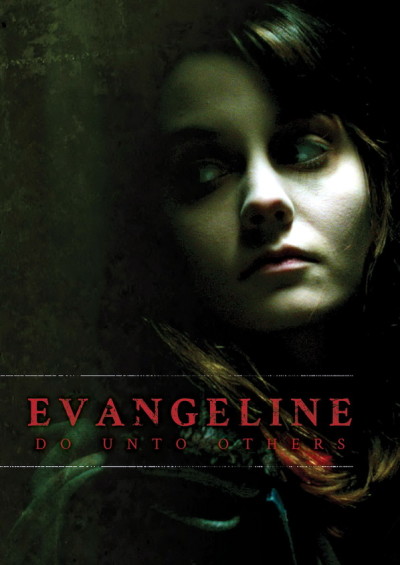 While I can’t find any sources to back my memory, I vaguely recall hearing a while ago about plans, either for a sequel or a reboot, to make a female version of The Crow. This seems like much the same thing, though based on the incoherent results here, they probably should bury the concept alongside Brandon Lee. Eva (de Lieva) is a preacher’s daughter, who has apparently led a sheltered life before enrolling at college. It’s not long, however, before she is attending her first frat party; unsurprisingly, this leads to her driving the big white bus. Things then go from bad worse, as a subsequent invitation from a fellow student leads to her being drugged, taken to the forest, gang-raped by a trio led by Michael Konner (Harmon), and left for dead. Or perhaps actually dead. For what happens next is either a) Eva’s corpse is possessed by some kind of demonic entity, and restored to life to take revenge, or b) she merely thinks that’s what happened, this being her psyche’s way of explaining and justifying said revenge.
While I can’t find any sources to back my memory, I vaguely recall hearing a while ago about plans, either for a sequel or a reboot, to make a female version of The Crow. This seems like much the same thing, though based on the incoherent results here, they probably should bury the concept alongside Brandon Lee. Eva (de Lieva) is a preacher’s daughter, who has apparently led a sheltered life before enrolling at college. It’s not long, however, before she is attending her first frat party; unsurprisingly, this leads to her driving the big white bus. Things then go from bad worse, as a subsequent invitation from a fellow student leads to her being drugged, taken to the forest, gang-raped by a trio led by Michael Konner (Harmon), and left for dead. Or perhaps actually dead. For what happens next is either a) Eva’s corpse is possessed by some kind of demonic entity, and restored to life to take revenge, or b) she merely thinks that’s what happened, this being her psyche’s way of explaining and justifying said revenge.
Both, widely disparate explanations are equally plausible, and writer/director Lam seems to have little or no interest in clarifying matter, perhaps because, from what I’ve read, she was more interested in making “feminist response horror,” whatever that is. As the quote mis-attributed to Sam Goldwyn put it, “If you have a message, call Western Union.” While I’ve no problems at all with messages in films, feminist or otherwise, they should always be secondary to the film, and you don’t get the feeling that’s the case here. Admittedly, this is because so little effort is put into telling a decent story: when you’ve so little idea of what’s going on, there’s no reason to care about any thing the creators are trying to say. Here, for example, there is also a confused and superfluous subplot about a PTSD-afflicted veteran, living in the woods, as well as an apparent serial killer, “Mr K”. The purpose of both these are obscure, since neither seem to add much of significance.
This is a bit of a shame, since the look of the film is much more decent than its content, aspects such as the photography, sound design and special effect meshing to an okay degree – even if some of the visual techniques do appear to have been lifted wholesale from a far better film about someone’s sanity falling apart and/or demons, Jacob’s Ladder. That creature, mostly seen in its grey, spindly fingers, is undeniably a creepy motif. However, particularly in this genre, style can only take you so far, before it emphasizes and exacerbates a lack of content. In that area, I kept hoping the film was going to deliver enough to justify its existence; but the end-credits rolled, and I was still left entirely unsatisfied.
Dir: Karen Lam
Star: Kat de Lieva , Richard Harmon, Mayumi Yoshida, David Lewis





 This makes a great deal more sense when you realize it’s actually a sequel, not only to Cymek’s earlier Dark Rising, but also the TV series that followed. The US/Netflix title and blurb cunningly manage to avoid mentioning this, which certainly explains the sense that you have walked into the middle of a story. For instance, none of the characters are apparently fazed by the fact that interdimensional portals have opened, allowing all manner of icky creatures to enter this Earth’s realm from a “Dark Earth”. It’s up to the Rising Dark Agency, a Government department [apparently staffed by about six people] to keep the resulting mayhem in check. Chief among its operatives are Jason Parks (Cannon, a dead-ringer for Dolph Lundgren) and Summer Vale (Kingsley, also the director’s wife), whose combination of human and demon DNA you have probably noticed on the poster. And are perhaps still staring at.
This makes a great deal more sense when you realize it’s actually a sequel, not only to Cymek’s earlier Dark Rising, but also the TV series that followed. The US/Netflix title and blurb cunningly manage to avoid mentioning this, which certainly explains the sense that you have walked into the middle of a story. For instance, none of the characters are apparently fazed by the fact that interdimensional portals have opened, allowing all manner of icky creatures to enter this Earth’s realm from a “Dark Earth”. It’s up to the Rising Dark Agency, a Government department [apparently staffed by about six people] to keep the resulting mayhem in check. Chief among its operatives are Jason Parks (Cannon, a dead-ringer for Dolph Lundgren) and Summer Vale (Kingsley, also the director’s wife), whose combination of human and demon DNA you have probably noticed on the poster. And are perhaps still staring at.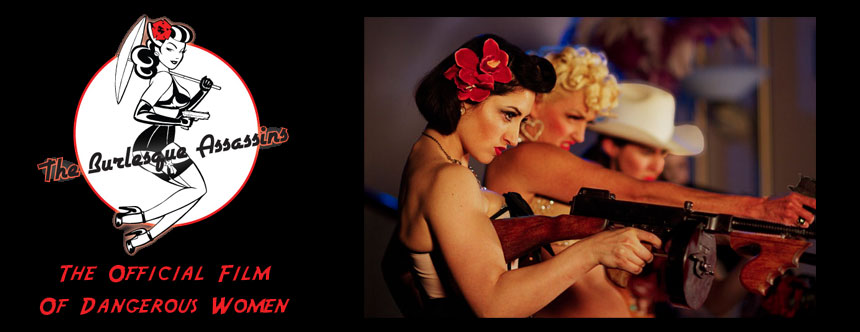
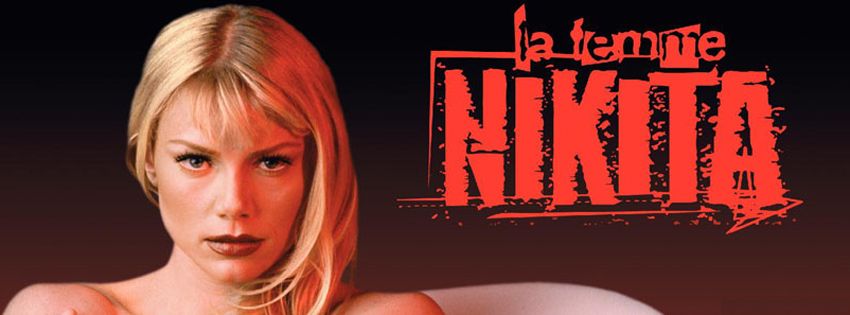 ★★★
★★★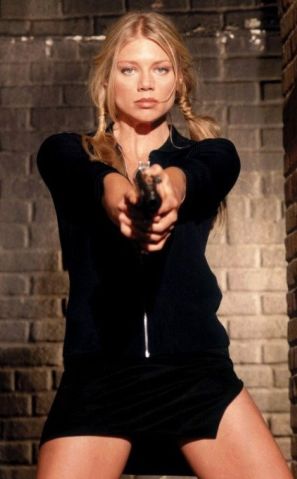 The other chance is that Section One, their version of Division, is not malicious – at least not in the same way. It’s certainly a heartless organization, which is utterly ruthless, and prepared to dispose of anyone who may interfere with their actions, but it’s more an awareness that when you’re dealing with terrorists, organized crime or other threats to the country and world, you can’t be unwilling to get your hands dirty. It leads to a significant bleaker overall tone, and is amazingly prophetic, given this was screened well before 9/11 led to this attitude become a necessary part of national security. Early on, it’s established that you can never trust Section heads Operation (Glazer) and Madeleine (Watson, who was also part of the remake, playing Senator Pierce – her given name there was also Madeleine), to the extent that their deceit becomes almost a cliché.
The other chance is that Section One, their version of Division, is not malicious – at least not in the same way. It’s certainly a heartless organization, which is utterly ruthless, and prepared to dispose of anyone who may interfere with their actions, but it’s more an awareness that when you’re dealing with terrorists, organized crime or other threats to the country and world, you can’t be unwilling to get your hands dirty. It leads to a significant bleaker overall tone, and is amazingly prophetic, given this was screened well before 9/11 led to this attitude become a necessary part of national security. Early on, it’s established that you can never trust Section heads Operation (Glazer) and Madeleine (Watson, who was also part of the remake, playing Senator Pierce – her given name there was also Madeleine), to the extent that their deceit becomes almost a cliché.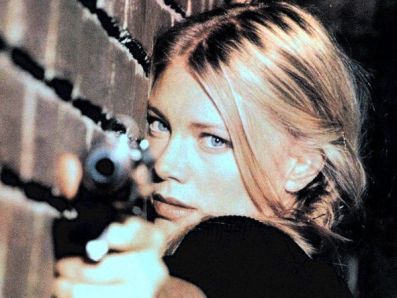 On the other hand, apart from the lack of action, the angle I liked least was the relationship between Nikita and her handler/fellow agent, Michael (Dupuis). I’ll come right out and say it: I hate ‘shippers, and storylines that pander to them are nothing more than an irritant to me, especially in shows which I watch for action, where they do little except interfere with the good stuff, in my humble opinion. [We’ve seen this in the new incarnation, where the show has disintegrated from one of the best shows on TV, into little more than Mr. and Mrs. Smith And Friends.] I’m definitely a “noromo”: If I wanted unresolved sexual tension and relationship nonsense, I’d watch daytime soap operas. Right from the first time Nikita and Michael meet, it’s doe-eyed heaven, even though there is obviously little or no honesty, trust and anything else on which a genuine relationship could ever be founded.
On the other hand, apart from the lack of action, the angle I liked least was the relationship between Nikita and her handler/fellow agent, Michael (Dupuis). I’ll come right out and say it: I hate ‘shippers, and storylines that pander to them are nothing more than an irritant to me, especially in shows which I watch for action, where they do little except interfere with the good stuff, in my humble opinion. [We’ve seen this in the new incarnation, where the show has disintegrated from one of the best shows on TV, into little more than Mr. and Mrs. Smith And Friends.] I’m definitely a “noromo”: If I wanted unresolved sexual tension and relationship nonsense, I’d watch daytime soap operas. Right from the first time Nikita and Michael meet, it’s doe-eyed heaven, even though there is obviously little or no honesty, trust and anything else on which a genuine relationship could ever be founded. I think this really comes down to a question of managing expectations. Hearing this was a film based on the life of Monica Proetti, Canada’s premiere female bank-robber, responsible for 20+ hold-ups before being gunned down by the cops… Well, seems like plenty of potential for action, doesn’t it? The reality is less concerned with the robberies, than the events which lead up to them. Monique Sparvieri (Bonnier) lives in the Montreal slums, working part-time as a hooker, for fun and profit. Her first husband Michael (Schorpion), is a safe-cracker who vanishes after his planned robbery is snatched from under his nose. She then hooks up with Gaston (Huard), another member of the team, and begins her own life of crime. When he is sent to jail in the mid-1960’s, she is left with limited options to provide for her children, and goes full-bore into the banking business, with yet another lover, Gerald (Dupuis).
I think this really comes down to a question of managing expectations. Hearing this was a film based on the life of Monica Proetti, Canada’s premiere female bank-robber, responsible for 20+ hold-ups before being gunned down by the cops… Well, seems like plenty of potential for action, doesn’t it? The reality is less concerned with the robberies, than the events which lead up to them. Monique Sparvieri (Bonnier) lives in the Montreal slums, working part-time as a hooker, for fun and profit. Her first husband Michael (Schorpion), is a safe-cracker who vanishes after his planned robbery is snatched from under his nose. She then hooks up with Gaston (Huard), another member of the team, and begins her own life of crime. When he is sent to jail in the mid-1960’s, she is left with limited options to provide for her children, and goes full-bore into the banking business, with yet another lover, Gerald (Dupuis).
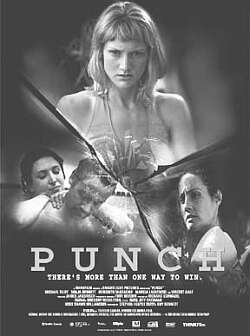 Topless Female Boxing. There. The reader is paying attention. Yet, if the subject has been covered in a less appealing way than here, I probably don’t want to see it. Indeed, as the toplessness is neither vital to the plot, nor visually pleasing, you wonder why they bothered. The main character here is 18-year old Ariel (Bennett), whose relationship with her father (Riley) is disturbingly close, to the point that she punches his date Mary (Laskowski) for using – entirely aptly – the word “creepy”. This pisses-off Mary’s sister, Julie (McGeachie), an even badder-ass than Ariel, who channels anger into the previously mentioned TFB, with a 38-0 record. She confronts father and daughter, aiming to make them fix their mistake. Viewers will likely eagerly anticipate Ariel getting her ass handed to her by Julie…
Topless Female Boxing. There. The reader is paying attention. Yet, if the subject has been covered in a less appealing way than here, I probably don’t want to see it. Indeed, as the toplessness is neither vital to the plot, nor visually pleasing, you wonder why they bothered. The main character here is 18-year old Ariel (Bennett), whose relationship with her father (Riley) is disturbingly close, to the point that she punches his date Mary (Laskowski) for using – entirely aptly – the word “creepy”. This pisses-off Mary’s sister, Julie (McGeachie), an even badder-ass than Ariel, who channels anger into the previously mentioned TFB, with a 38-0 record. She confronts father and daughter, aiming to make them fix their mistake. Viewers will likely eagerly anticipate Ariel getting her ass handed to her by Julie…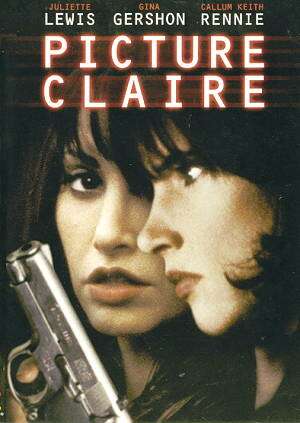 Set over one day, more or less, in Toronto, this can’t make up its mind whether to be a tense thriller, or an art-house drama. The result is an uneasy blend, where most of the elements are fine, yet the overall result falls short of completely satisfying. Quebecois Claire (Lewis, spouting an irritating French accent, and shouting “Beelee!” a lot) travels to Toronto in search of a photographer with whom she had a brief relationship. She doesn’t initially find him, but ends up chief suspect in a murder committed by Lily (Gershon), and also the only person who knows the whereabouts of Lily’s film canister, which is being sought by a psychotic criminal (Rennie).
Set over one day, more or less, in Toronto, this can’t make up its mind whether to be a tense thriller, or an art-house drama. The result is an uneasy blend, where most of the elements are fine, yet the overall result falls short of completely satisfying. Quebecois Claire (Lewis, spouting an irritating French accent, and shouting “Beelee!” a lot) travels to Toronto in search of a photographer with whom she had a brief relationship. She doesn’t initially find him, but ends up chief suspect in a murder committed by Lily (Gershon), and also the only person who knows the whereabouts of Lily’s film canister, which is being sought by a psychotic criminal (Rennie).